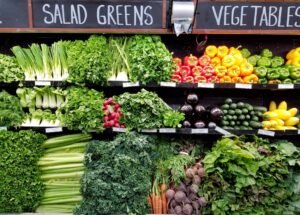Using a Low FODMAP diet for Irritable Bowel Syndrome
Low FODMAPS
What is FODMAP anyway? What does it have to do with the food I eat, or with my digestion?You may have come across this term recently if you’ve Googled anything about bloating or IBS (irritable bowel syndrome). Or if you’ve seen a nutritionist or even a gastroenterologist they may have recommended this way of eating. I’d like to explain what FODMAPS means and how it may (or may not) be relevant to your health.FODMAP means fermentable oligosaccharides, disaccharides, monosacharides and polyols. These are all short-chain carbohydrates (or sugars) that are poorly absorbed by the small intestine. Because they are poorly absorbed, some people experience gas, bloating, constipation or diarrhea after ingesting foods with a high level of these starches. These are symptoms associated with Irritable Bowel Syndrome (IBS) or Small Intestine Bacterial Overgrowth (SIBO), which I discuss hereArticle by Dr. SashaLow FODMAP is not a low-carbohydrate diet, or even a no-sugar diet. It’s avoiding the specific carbohydrate categories listed above. Here is one example of a list of low and high FODMAP foods:Low FODMAP DIETNot all people with IBS respond to a low FODMAP diet but the only real way to determine if you are one of them, is to experiment.Monash University (monashfodmap.com) has some great resources. I really like their approach to a low FODMAP experiment:It’s a 3 step process:
- Identify low vs. high FODMAP foods (for example, you would want to avoid apples and mangos, but enjoy oranges, blueberries and cantelope). Follow a low FODMAP diet for 2-6 weeks.
- Re-introduce foods that are higher in FODMAP: one FODMAP (fructose, lactose, etc) at a time and one food at a time. Monitor your symptoms. Slowly increase number of these foods and amounts.
- Personalize your level of FODMAP foods. I find, and the research supports this as well, that each person is different in terms of which foods and/or how much are tolerated.
After this period of avoidance and re-introduction, some people find that they can eat a diet relatively high in FODMAPS except for onion and garlic. Other people find that they can tolerate small or infrequent high FODMAP foods.And the best thing about this process is that it’s now a tool you have and are familiar with. So if it has worked and you rarely experience your previous digestive symptoms, you don’t need to restrict these foods. But if you do experience a flare-up and some of these symptoms return, you can resume limiting high FODMAP foods for a week or two or until you feel better.(Please note that if you have a history of disordered eating restricting foods for any reason can be a trigger. If this is the case for you I would NOT recommend adopting a low FODMAP diet. It may be better to work with a specialist to find other ways to manage your IBS or SIBO.)

